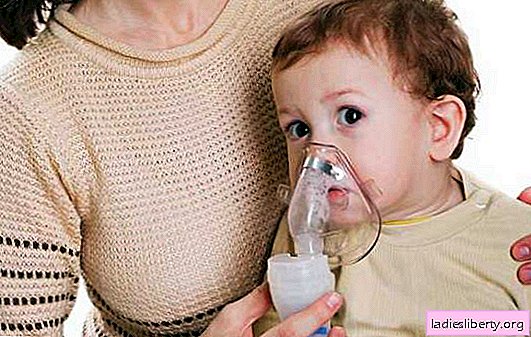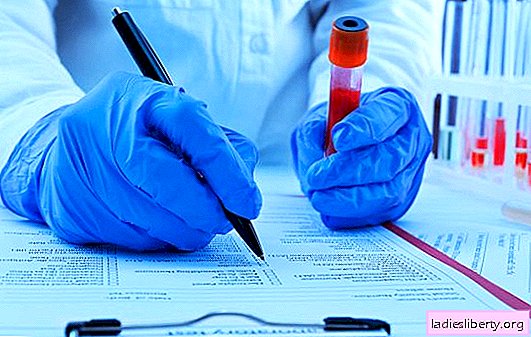
Despite modern living conditions, modern people live in constant danger of infectious diseases and eating disorders.
According to medical statistics on gastrointestinal pathology, it is almost exclusively a “privilege” of urban residents and developed countries.
Diarrhea, vomiting, temperature in adults, these symptoms almost always indicate problems with the gastrointestinal tract.
How to determine exactly what the matter is, how dangerous these symptoms are and what to do?
Diarrhea, vomiting, temperature in an adult: what is it?
Together, diarrhea, vomiting, temperature in an adult make up a fairly clear symptomatic complex. Unfortunately, an unambiguous conclusion about the nature and cause of the pathological process only on the basis of these three manifestations cannot be made. All three manifestations are found in a huge number of diseases. But there is a plus, such symptoms can cut off a significant number of other pathologies. Based on the symptoms, we can draw general conclusions about the nature of the disease:
• Often all three symptoms occur in primary lesions of the gastrointestinal tract.
• It is also possible the development of food or other poisoning.
• Infectious causes are less common, but also occur.
The two groups of causes themselves are very diverse.
What diseases of the gastrointestinal tract cause diarrhea, vomiting, temperature in an adult:
1) Acute gastritis (inflammation of the gastric mucosa).
2) Acute pancreatitis (inflammation of the pancreas).
3) Acute cholecystitis (inflammation of the gallbladder).
4) Hepatitis.
5) Acute colitis or enterocolitis (inflammation of one or more parts of the intestine).
6) Dysbacteriosis.
7) Malignant neoplasms of the gastrointestinal tract in stages 3-4 (extremely unlikely, since the symptoms in the last stages are sharply expressed and include a lot of other symptoms, much more severe).
8) Appendicitis.
The second group of reasons includes:
1) Food poisoning. As a rule, the symptoms of poisoning are very indicative.
2) Non-food poisoning (mercury vapor, heavy metal salts, etc.).
Infectious diseases are much less common:
• Cholera.
• Dysentery.
• Salmonellosis (often confused with food poisoning).
Differential diagnosis should be left to doctors. It is impossible to draw an unambiguous conclusion about the causes of this condition without conducting analyzes and functional studies. However, based on the entire symptomatic complex, it is possible to draw preliminary conclusions about your ailment.
1) Acute gastritis is accompanied not only by vomiting, fever and diarrhea, but also:
• Severe pain in the diaphragm (2 fingers below the chest). Pain can radiate to other parts of the abdomen, back and even arms. It has a stabbing, cutting or dull aching character.
• Sour burping, or burping with the smell of eggs.
2) Pancreatitis is accompanied by intolerable pain on the left side of the abdomen (it can be local, or spread throughout the abdomen, encircle it). This is an extremely dangerous disease that requires immediate medical attention.
3) Acute cholecystitis is accompanied by sharp cutting pains in the right side of the abdomen (under the ribs, just above the navel). In addition to pain, there are:
• Bitterness in the mouth in the morning.
• Nausea for no apparent reason.
• discoloration of feces.
As a rule, “out of the blue”, neither cholecystitis nor pancreatitis occur. They can be the answer to the long-term use of fatty, fried foods, or alcohol.
4) Hepatitis. Hepatitis of any etiology (infectious, toxic, etc.) are accompanied by:
• A feeling of heaviness in the right hypochondrium (feeling of fullness).
• A change in the color of feces (feces becomes the color of clay or completely discolored).
5) Acute colitis is difficult to distinguish from dysentery in a domestic setting. In both cases, the leading symptom (in addition to abdominal pain) is a painful false urge to defecate (tenesmus). In addition, stool with colitis contains visible impurities of blood, pus, white mucus.
6) Dysbacteriosis. The real scourge of modern society. In adults, it is associated with nutritional causes (malnutrition, diet). A characteristic sign of dysbiosis is green feces.
7) Malignant neoplasms of the digestive tract in the last stage. Characterized by:
• Severe pain in the area of the affected organ.
• Severe general symptoms.
• Sudden weight loss.
• Alternating diarrhea and constipation.
Malignant neoplasms of the intestine almost never affect young people under 45 years of age (this is casuistry). At the same time, the symptomatology does not develop sharply, but forms on an increasing basis.
8) Appendicitis is accompanied by severe cutting pains in the right iliac region (above and to the right of the pubic region).
Poisoning, as well as infectious diseases, are not so specific and are accompanied by more pronounced general symptoms.
In almost all cases, general symptoms are present:
• The temperature rises to the level of 37.5-39 degrees (the highest temperature is observed with pancreatitis, acute cholecystitis, infectious diseases). In malignant neoplasms, the temperature does not drop at all and remains at the level of 37.2-37.5 constantly.
• Headache.
• Nausea.
• weakness.
• Hunk in the bones.
Thus, the causes of diarrhea, vomiting, temperature in an adult are great.
Diarrhea, vomiting, temperature in an adult: first aid
First aid for these symptoms is not intended to completely cure. The goal is to alleviate the symptoms. It is important not to overdo it: uncontrolled intake of drugs can lead to a worsening of the condition and "blurring" of the picture of the disease. Do not complicate the work of the doctor.
In general, it is recommended:
• Acceptance of absorbent drugs. Do not "buy" the tricks of advertisers. The most effective and affordable is activated carbon. It should be taken at the rate of 1 tablet per 10 kg of weight. However, coal should be drunk only if there is a suspicion of the infectious, toxic nature of the disease or poisoning. In addition, within the next 4-8 hours it is necessary to empty the intestines. Otherwise, the process of reverse absorption of toxins in the colon will go.
• Acceptance of antispasmodics (for the investment of pain). Pain in the triad of the described symptoms is most often caused by a spasm of the smooth muscles of one or another organ (intestines, liver, etc.). Among antispasmodics: No-shpa, Duspatalin and others.
• If the patient is absolutely sure that the cause of his condition is poisoning, it makes sense to gastric lavage. In domestic conditions, it is made as follows: drink from 6 to 8 glasses of water (you can add a little potassium permanganate), then press on the root of the tongue to cause vomiting. The procedure is carried out until the outgoing water is clean, without impurities of food.
Antibiotics, anti-inflammatory - strictly according to the indications and under the supervision of a doctor. If symptoms persist or intensify, it is recommended that you do not experiment with your health and call an ambulance.
Diarrhea, vomiting, temperature in an adult: should I call a doctor
In all cases, the answer is yes. You should contact your gastroenterologist. If the condition is serious - immediately call an ambulance. Diarrhea, vomiting, temperature in an adult - the symptoms are alarming. They can testify to the mass of diseases, sometimes very life-threatening. It is impossible to engage in self-medication, since the results can be very deplorable. In the best case, a general deterioration.
Only a doctor can determine the cause of a serious condition based on the results of the diagnosis. How is the diagnosis carried out. Diagnostic measures include:
• History taking. The doctor asks questions to draw conclusions about the general condition of the patient, the causes of the disease.
• Laboratory tests: general blood test, fecal analysis. These studies will determine the presence of the inflammatory process, evaluate other important factors. Blood biochemistry.
• Ultrasound diagnostics. Allows you to assess the condition of the abdominal organs.
• Measurement of rectal temperature (especially important for determining appendicitis).
• Crops of biological material (with their help, the infectious nature of the disease is determined).
Together, these studies allow a 99% probability to establish the cause of the disease and begin treatment.
Diarrhea, vomiting, temperature in an adult: how much it is treated
The duration of treatment depends on the cause that caused the development of such a condition. The easiest way to deal with dysbiosis, treatment takes no more than 7-10 days. Treatment of acute gastrointestinal diseases is difficult and takes from 12 to 60 days. If it was started late, there is a risk of a transition to a chronic form. Then the treatment will be carried out in courses, as necessary.
Poisoning is treated, on average, in 8-15 days, not counting the rehabilitation period.
Treatment is reduced to eliminating the causes of such an unpleasant condition. As a rule, are assigned:
• Antispasmodics.
• Anti-inflammatory drugs.
• Antibacterial drugs.
• Strengthening drugs.
Thus, diarrhea, vomiting, temperature in an adult can be caused by a lot of reasons. All are quite serious, sometimes even threatening the life of the patient. One can only independently assume the presence of a particular disease. A visit to a doctor is mandatory in any case (even if the symptoms have disappeared sharply), you should not risk your health.











